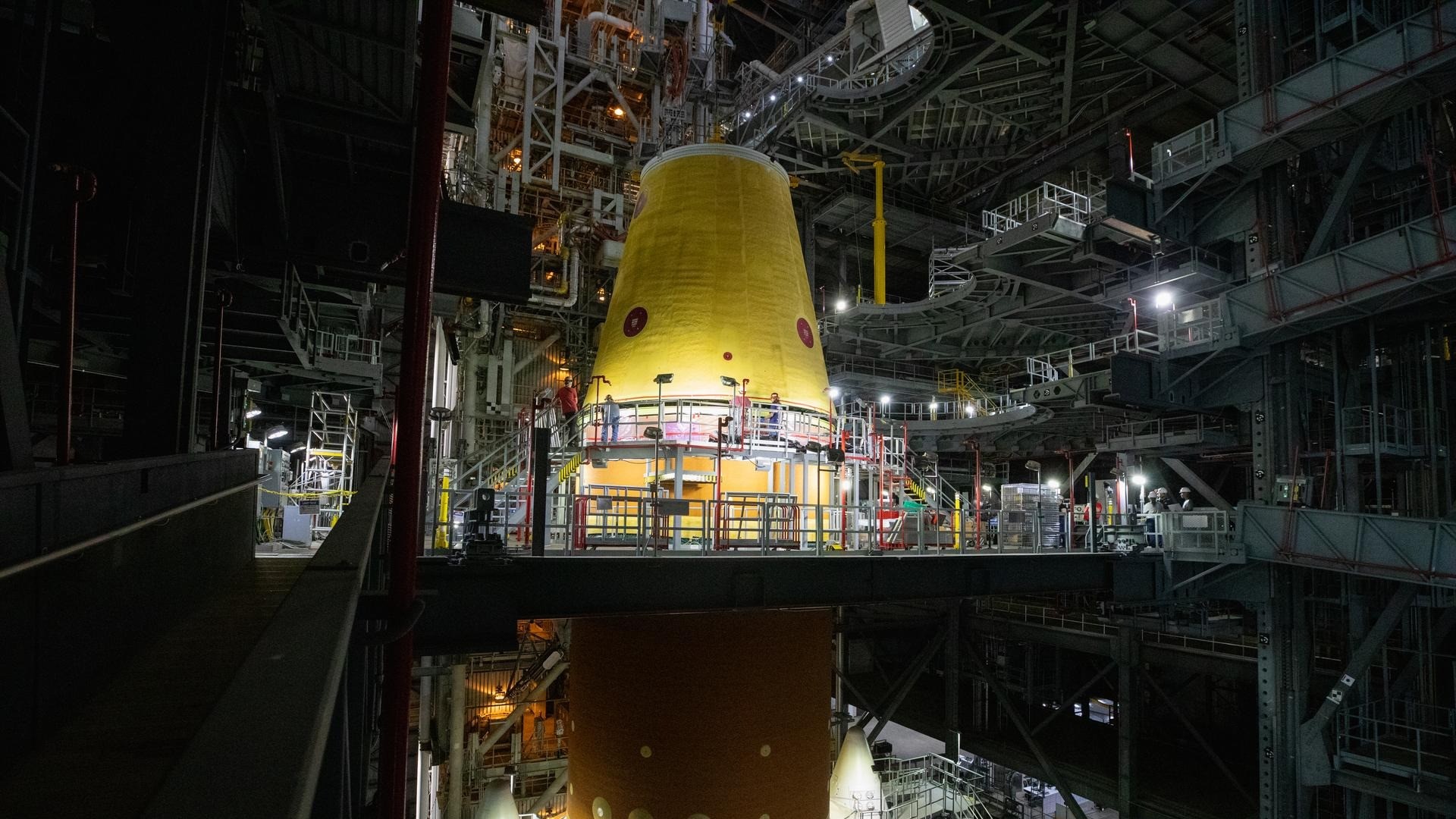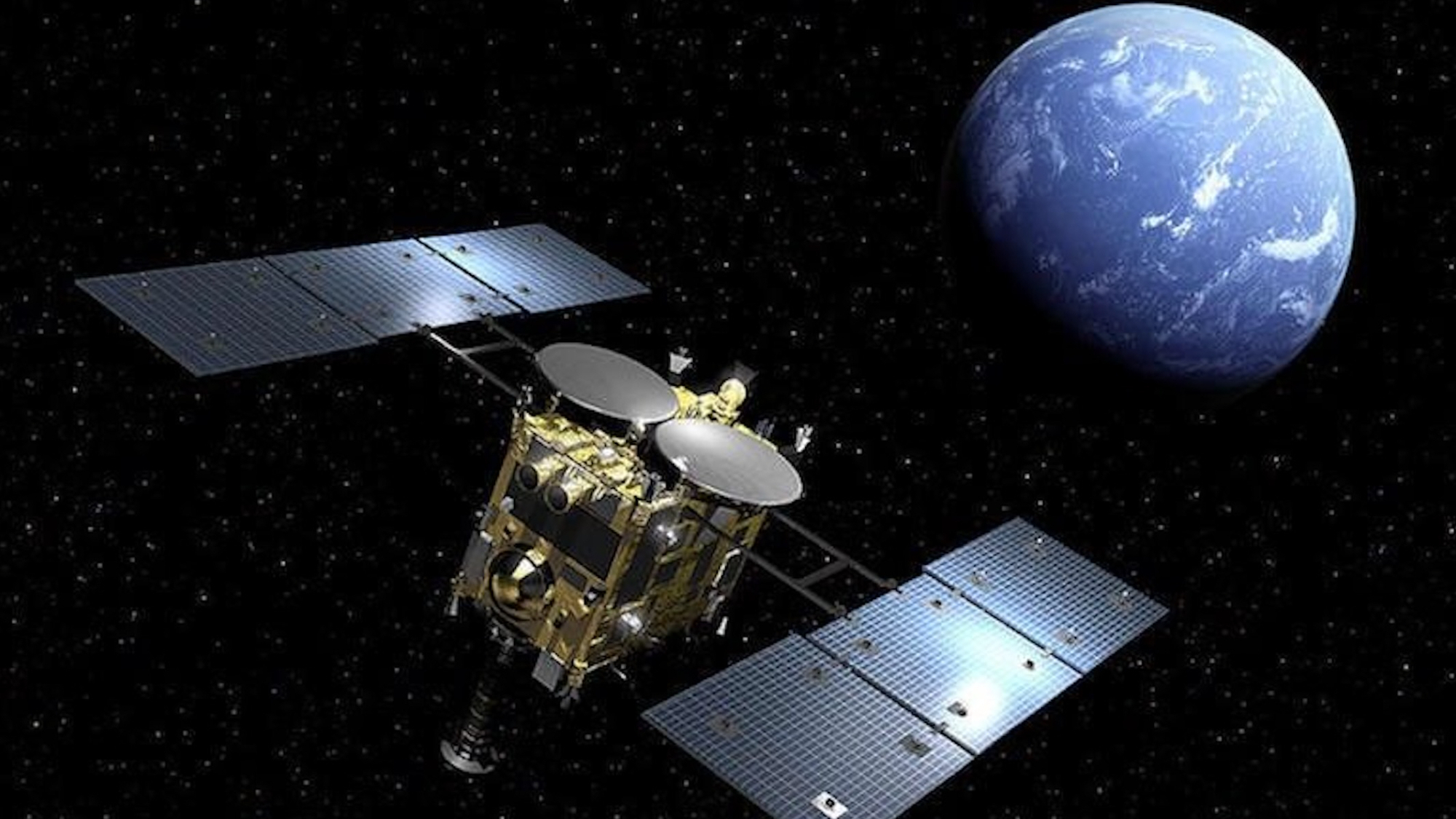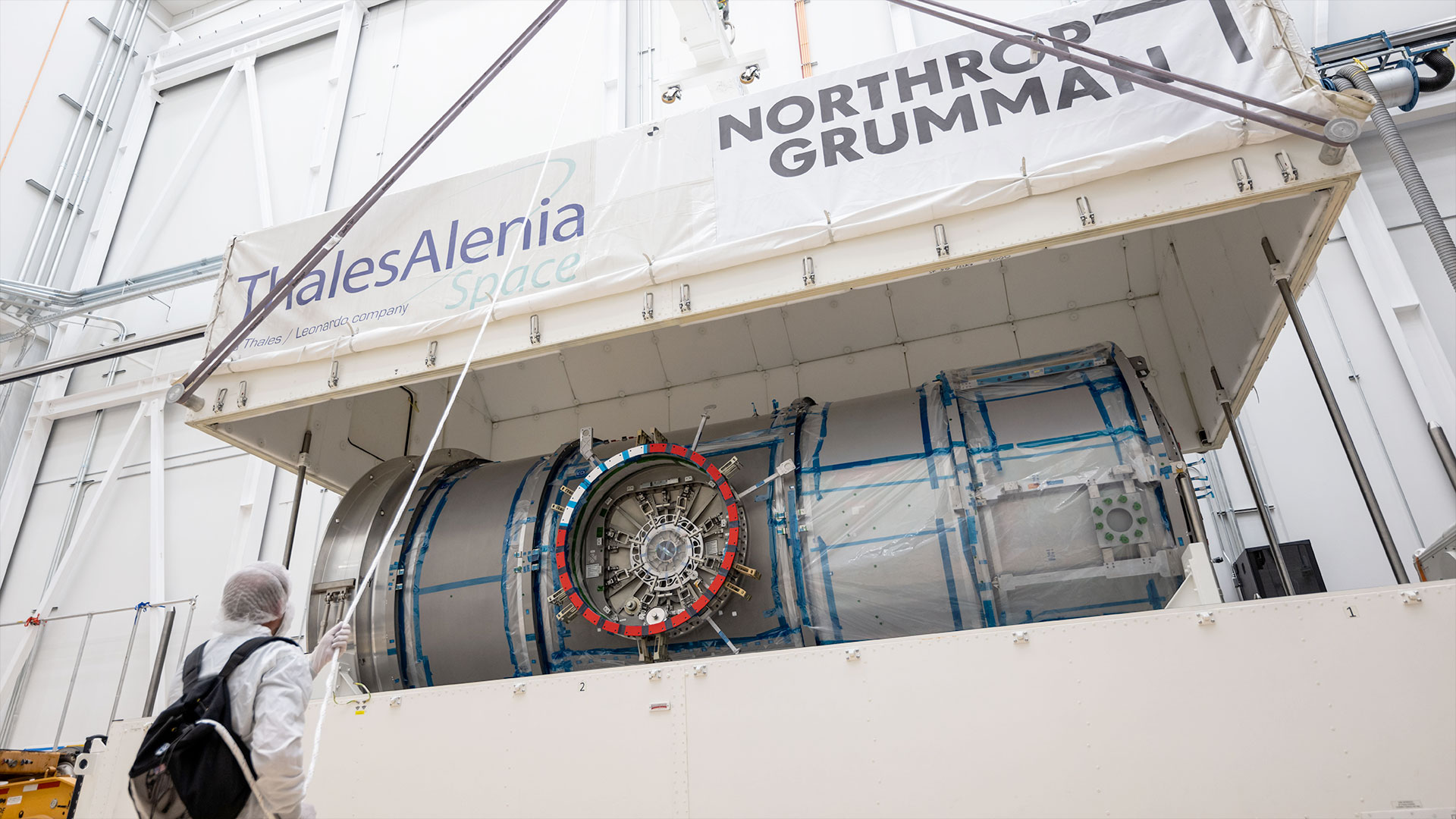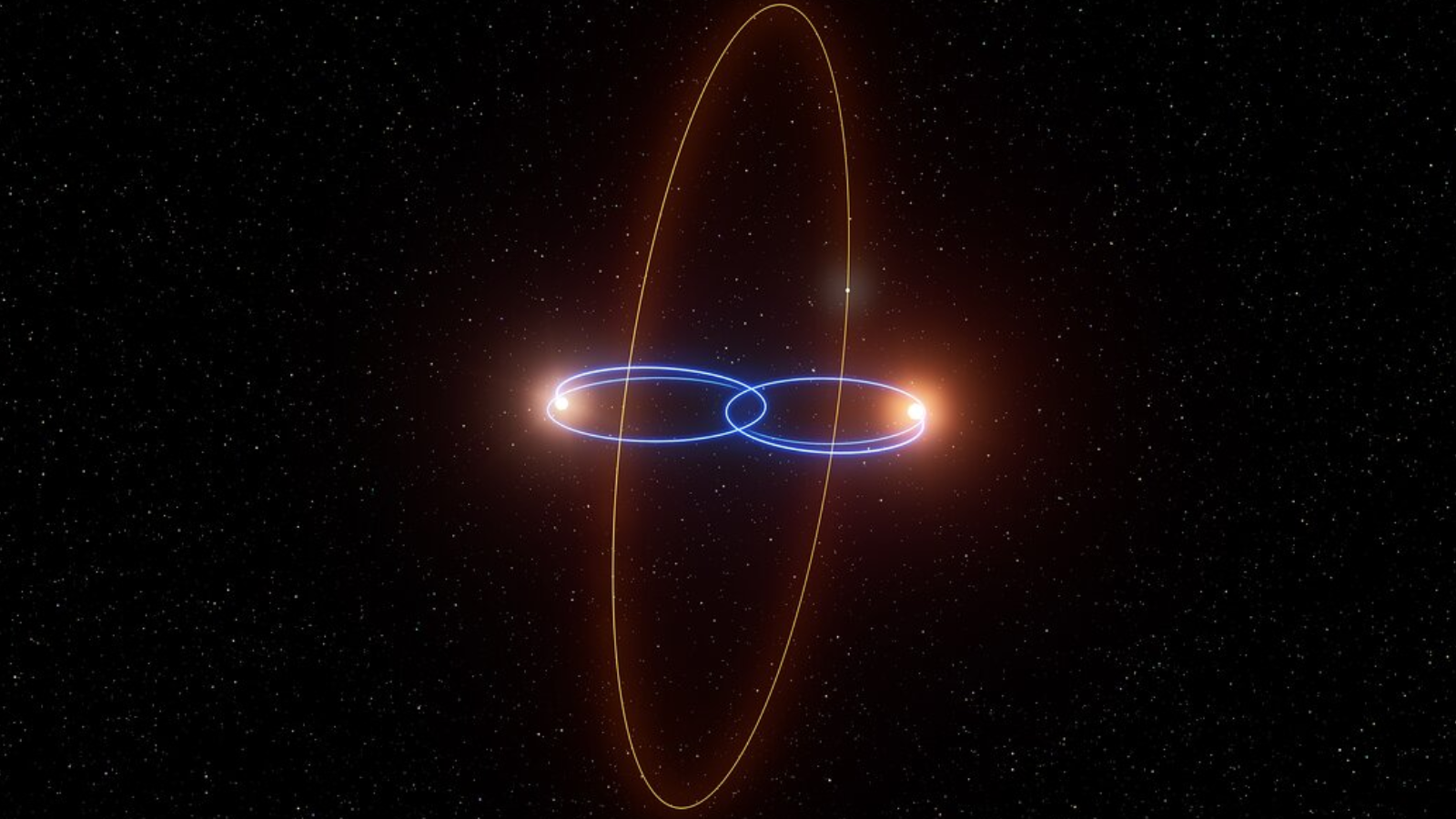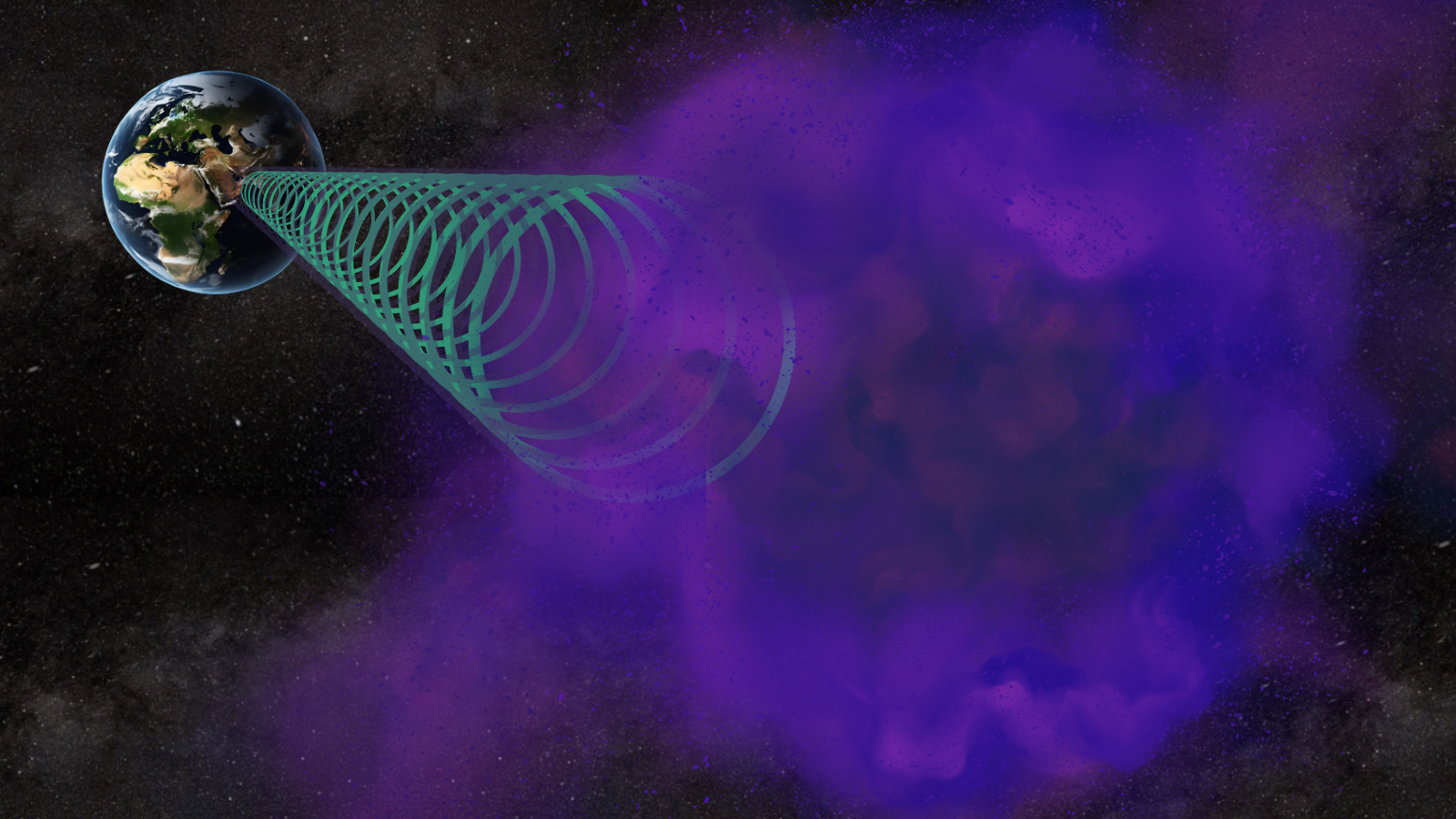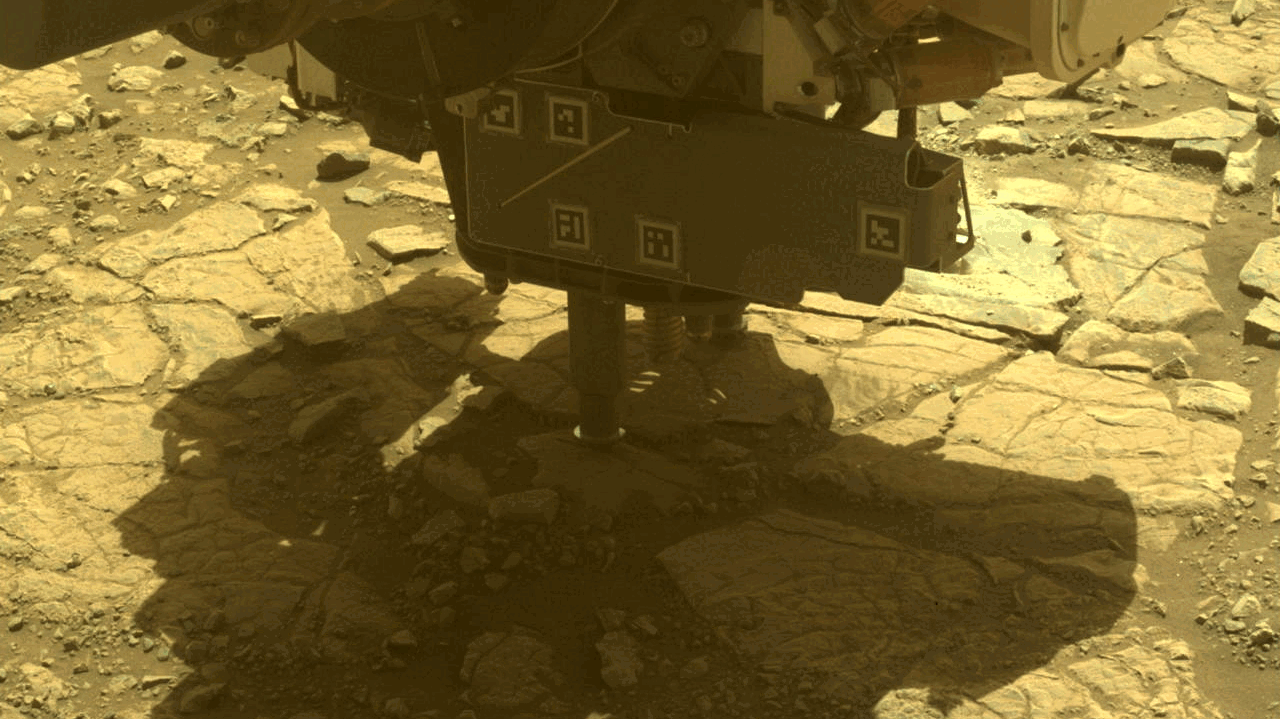Record-setting NASA astronaut lands with Russian crewmates after 1 year on space station
Frank Rubio, Sergey Prokopyev and Dmitri Petelin spent 371 days in space while traveling roughly the same distance as 328 round trips to the moon and back.
The first American to spend a full year in space and the first two Russians to do the same on the International Space Station (ISS) have landed safely back on Earth.
NASA astronaut Frank Rubio and cosmonauts Sergey Prokopyev and Dmitri Petelin of the Russian federal space corporation Roscosmos returned from the space station aboard Russia's Soyuz MS-23 spacecraft on Wednesday (Sept. 27). Their touchdown at 7:17 a.m. EDT (1117 GMT or 5:14 p.m. local time) on the steppe of Kazakhstan ended an extended 371-day stay in space for all three.
The landing established Rubio as the new record holder for the single longest mission flown by an U.S. astronaut. On Sept. 11, he surpassed the previous count of 355 days that was logged by fellow NASA astronaut Mark Vande Hei in 2022.
"My mission is really no different from Mark's," Rubio said during an in-flight press conference in response to a question from collectSPACE.com. "A lot of people have seen the endurance and the sacrifice that it takes to go this long. I'm just lucky to have gone a couple of extra weeks."
Video: NASA astronaut Frank Rubio surprised by accidental record in space
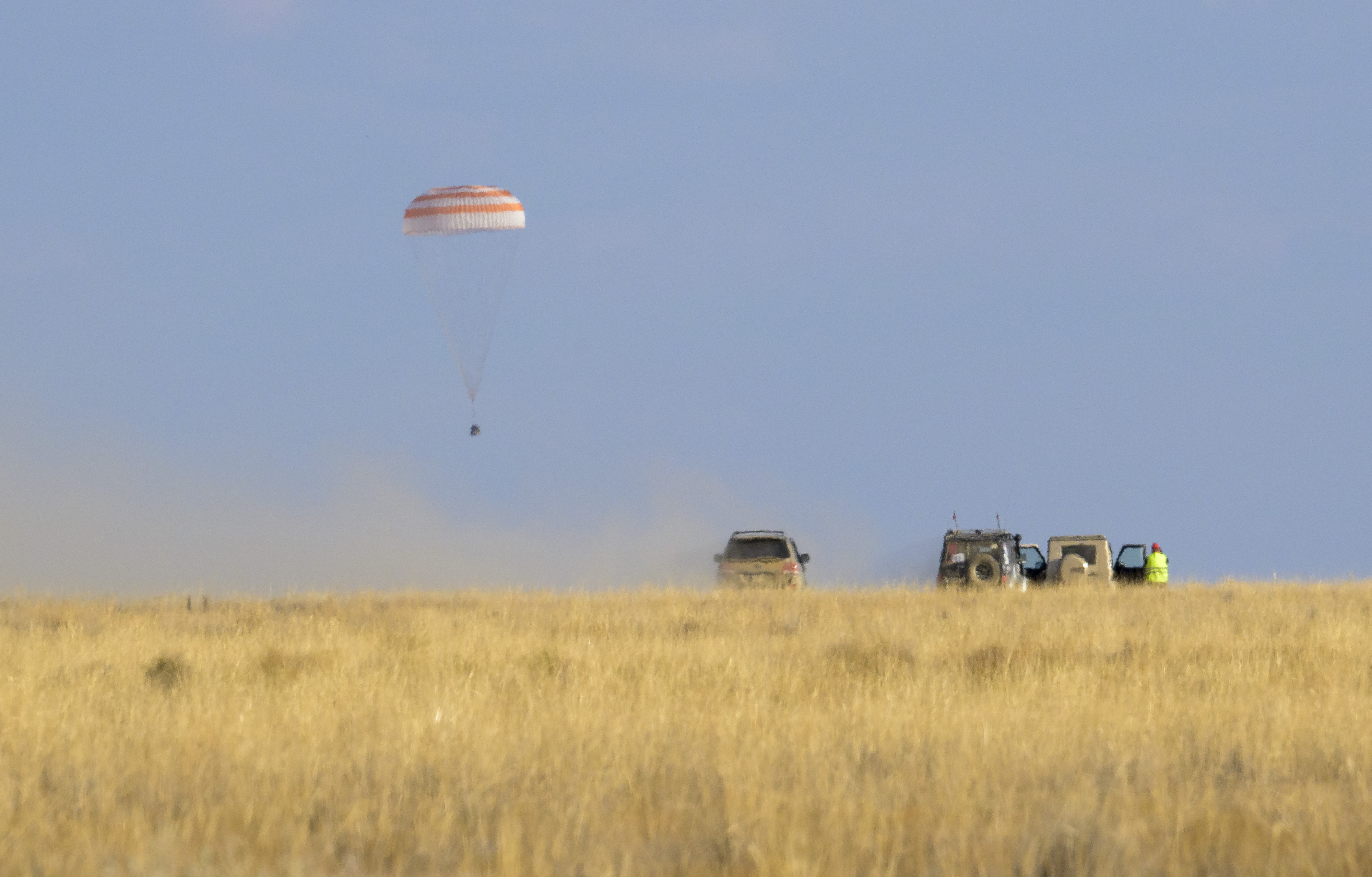
Prokopyev and Petelin are the sixth and seventh Russians to spend a year or more in space. Soviet-era cosmonauts Sergey Avdeev, Musa Manarov, Vladimir Titov and Valery Polyakov each spent more than 365 days on the former space station Mir. Polyakov, who died in 2022, still holds the worldwide record for the longest single space mission at 437 days.
Prokopyev, Petelin and Rubio's 371-day mission was the third longest in history.
Prokopyev, Petelin and Rubio began their trip home on Wednesday when they left the International Space Station at 3:54 a.m. EDT (0754 GMT). Their Soyuz spacecraft's undocking officially marked the end of Expedition 69 and the start of Expedition 70 aboard the orbiting complex.
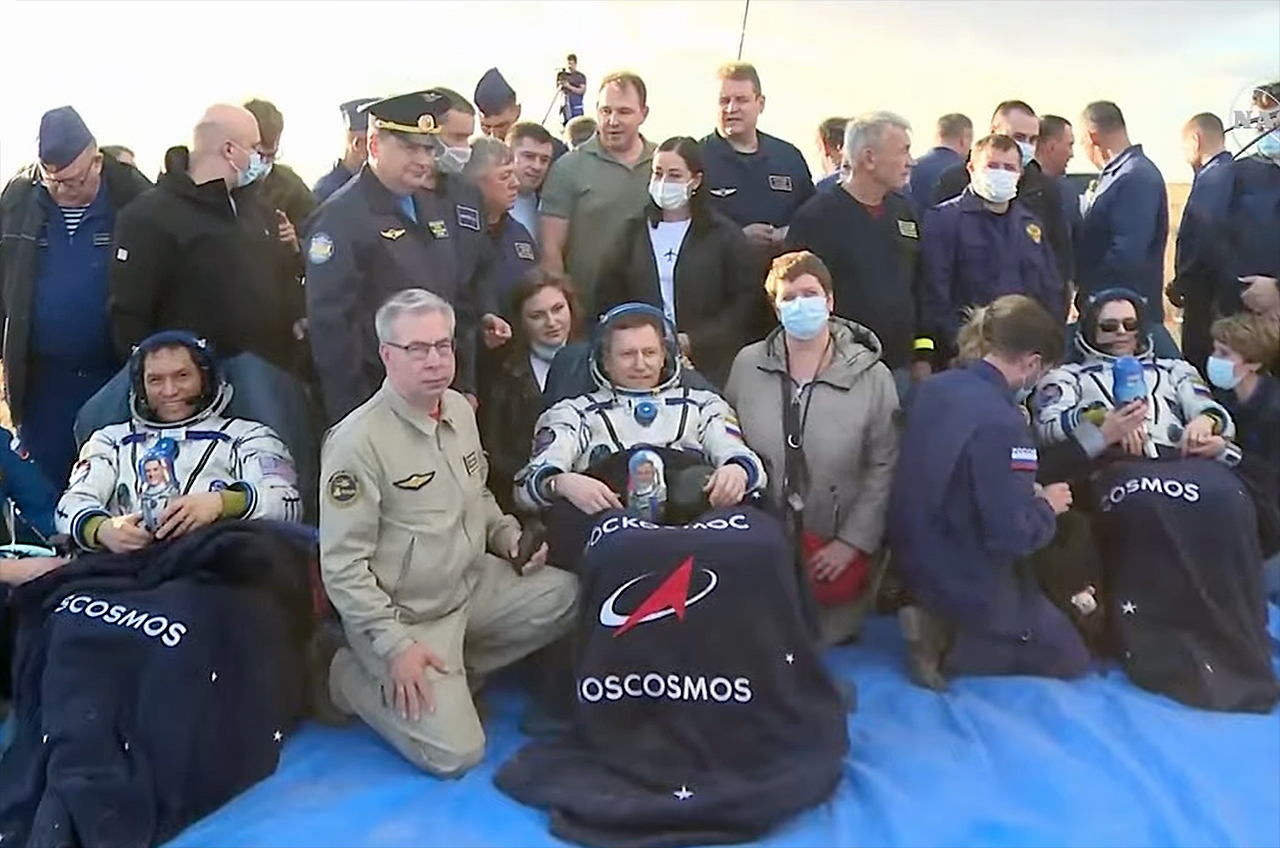
"You performed, Dmitri and Sergey, six spacewalks and Frank three," said European Space Agency (ESA) astronaut Andreas Mogensen, who took over command of the space station from Prokopyev during a brief ceremony on Tuesday (Sept. 26). "And perhaps most remarkably of all, you flew in space during your mission with 28 other individuals."
"Your competence, dedication and hard work is also abundantly clear to me and my Expedition 70 crewmates," Mogensen said. "The space station is tidy, organized and work up here is flowing smoothly and efficiently. And that's in large part thanks to your hard work during the last year. On behalf of Expedition 70, I would like to thank you for setting us up for success."
Mogensen's Expedition 70 crewmates include NASA astronauts Jasmin Moghbeli and Loral O'Hara, cosmonauts Andrey Fedyaev, Oleg Kononenko and Nikolai Chub of Roscosmos and Japan Aerospace Exploration Agency (JAXA) astronaut Satoshi Furukawa. Kononenko and Chub are scheduled to spend a year on the station to allow for a "taxi crew" and a short visit by a representative from the Republic of Belarus in March.
Get the Space.com Newsletter
Breaking space news, the latest updates on rocket launches, skywatching events and more!
Unlike Kononenko and Chub, Prokopyev, Petelin and Rubio did not know they would be off the planet for more six months when they launched on Sept. 21, 2022. Their mission was extended another half of a year after their first Soyuz, MS-22, suffered a coolant leak, leaving it no longer safe to return a crew to Earth. Russia, instead, launched a "rescue" Soyuz, MS-23, to bring the three crewmates home, but delayed their departure to maintain the crew rotation schedule.
"You have shown resilience, professionalism and grace in the face of unexpected challenges and significant uncertainty," said Mogensen to Prokopyev, Petelin and Rubio. "It's one thing to launch into space knowing that you're going to be up here for a year. It's a completely different thing for you and your families to find out towards the end of your six-month mission that you are going to be spending an additional six months in space."
"But you took it upon your shoulders and you excelled," he said.
Now on the ground, the crew will be flown to the staging city of Karaganda before Prokopyev and Petelin return to Star City, outside of Moscow, and Rubio is flown by NASA jet back to Houston and NASA's Johnson Space Center.
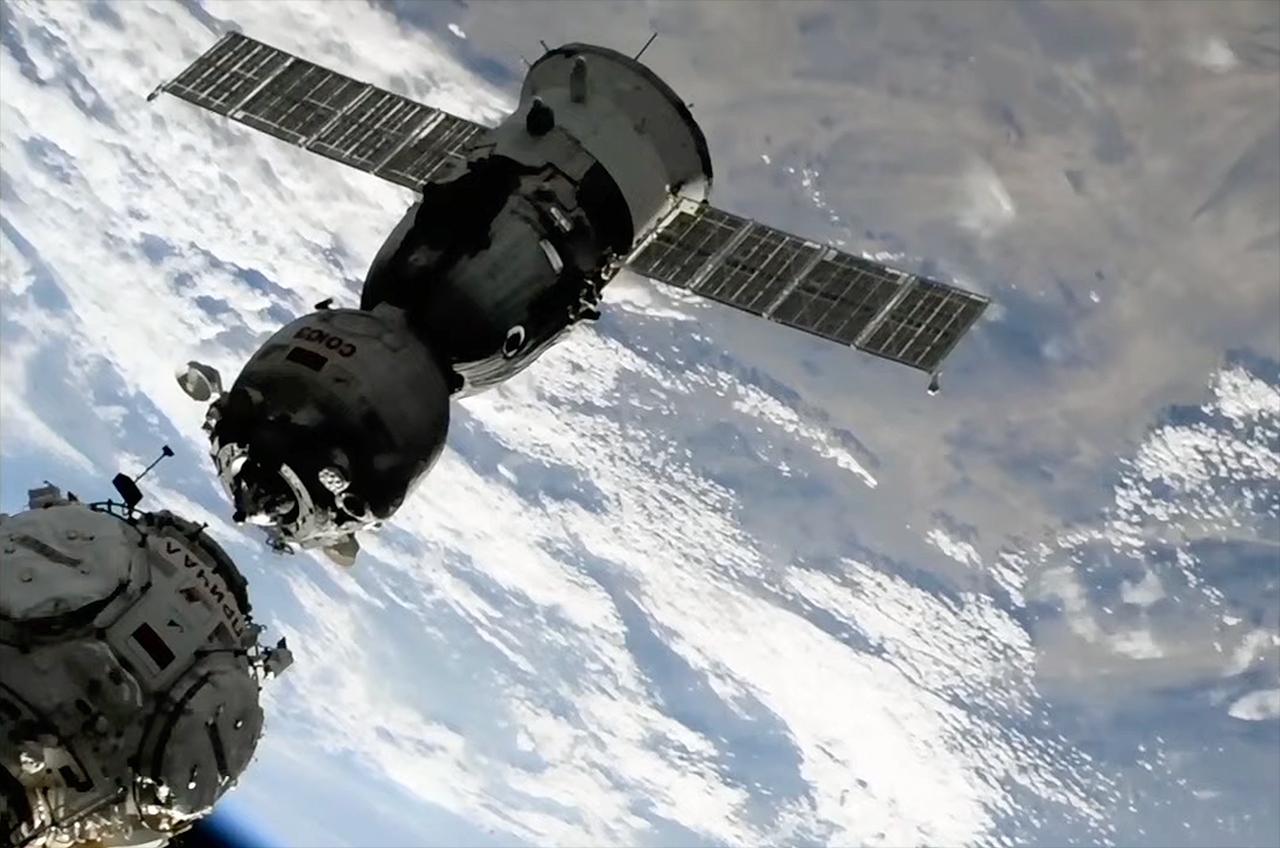
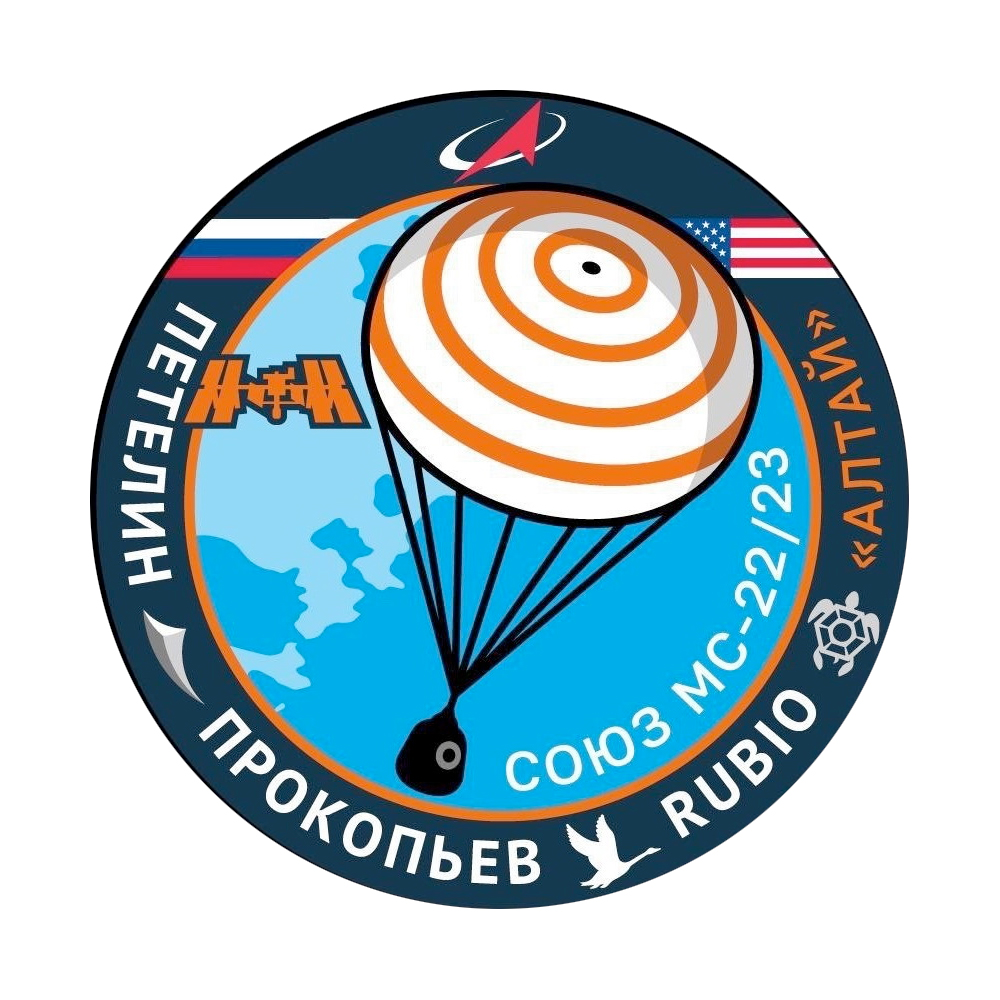
The Soyuz MS-22/MS-23 mission was Prokopyev's second time in space. He has now logged 568 days off Earth, ranking him 12th among the worldwide population of space travelers.
This was the first spaceflight for Petelin and Rubio, who joined their respective countries' corps in 2012 and 2017, respectively.
The three crewmates orbited Earth 5936 times while traveling 157,412,306 miles (253,330,550 km) or roughly the same as 328 round trips to the moon and back.
Follow collectSPACE.com on Facebook and on Twitter at @collectSPACE. Copyright 2023 collectSPACE.com. All rights reserved.
Join our Space Forums to keep talking space on the latest missions, night sky and more! And if you have a news tip, correction or comment, let us know at: community@space.com.

Robert Pearlman is a space historian, journalist and the founder and editor of collectSPACE.com, a daily news publication and community devoted to space history with a particular focus on how and where space exploration intersects with pop culture. Pearlman is also a contributing writer for Space.com and co-author of "Space Stations: The Art, Science, and Reality of Working in Space” published by Smithsonian Books in 2018.In 2009, he was inducted into the U.S. Space Camp Hall of Fame in Huntsville, Alabama. In 2021, he was honored by the American Astronautical Society with the Ordway Award for Sustained Excellence in Spaceflight History. In 2023, the National Space Club Florida Committee recognized Pearlman with the Kolcum News and Communications Award for excellence in telling the space story along the Space Coast and throughout the world.




